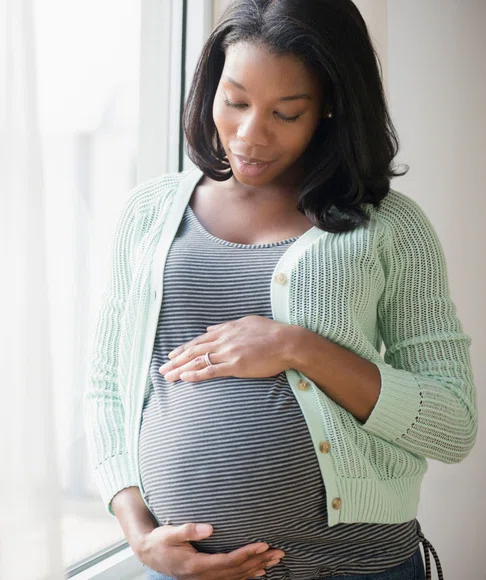© 2025. Houston Methodist, Houston, TX. All rights reserved.


In this
issue

WELCOME
NURSING SCIENCE

Climate, Health, and Nursing Tool (CHANT): A confirmatory factor analysis

Climate Change and Global Health: Emerging Challenges and Implications for Nursing Practice
EDUCATION

Evidence-Based Education Initiatives: Global Education Collaboration with International Nurses

An Interview with Cathy Easter from Houston Methodist Global
PRACTICE

Maternal Healthcare Disparities Among African American Women

We are the WORLD – Fostering Cultural Understanding
PROFESSIONAL DEVELOPMENT
MAGNET

Going Global with Magnet: The Role of Professional Nursing Organizations

Magnet Program Directors Support Nursing Excellence in Mexico

Celebrating the 5th Anniversary of DiscoveRN
FROM OUR TEAMS

ABOUT DISCOVERN
PRACTICE
Maternal Health Care Disparities Among African American Women
By Angela P. Jackson, MSN, RN, CHES, ACM-RN, Magnet Program Director, Houston Methodist Willowbrook Hospital
By Angela P. Jackson, MSN, RN, CHES, ACM-RN, Magnet Program Director, Houston Methodist Willowbrook Hospital

Black Maternal Health Week is observed nationally each year from April 11 - 17 to raise awareness about the maternal health care disparities African American (AA) women experience at a disproportionate rate. Despite advancements in maternal medical care, there remains a significantly higher rate of maternal morbidity and mortality among AA women when compared to other racial and ethnic groups.
The anticipation of childbirth is often filled with optimism and elation. However, complications can impact the mother and baby. According to the World Health Organization (WHO, 2023), approximately 800 women die from preventable causes related to pregnancy and childbirth every day, equating to a pregnancy-related death every two minutes.
Health care organizations and providers often take a multifaceted approach to ensure a safe birthing experience by establishing policies and procedures, providing extensive training for staff, conducting community health needs assessments, and forming collaborative relationships throughout the community. Unfortunately, despite these efforts, maternal health care disparities continue to exist.
According to demographic information compiled by the Johns Hopkins Bloomberg School of Public Health (2023), AA women are three to four times more likely to die from life-threatening pregnancy-related complications such as preeclampsia, postpartum hemorrhage and blood clots than their white counterparts. This statistic may be further exacerbated by systemic inequities experienced by AA women, such as culturally insensitive care, cultural biases and limited access to quality health care within their community. This statistic is further exacerbated by various non-medical drivers of health as well as limited access to healthcare in the community.
From 2018 to 2020, Texas experienced an increase in maternal mortality among all demographics, with rates increasing from 17.0 to 27.7 deaths per 100,000 live births (Ingram, 2024). During the same period, maternal morbidity rates among African American women in Texas were 134.4 per 100,000 live births, approximately twice the number documented for white women, whose maternal morbidity rates were 72.6 per 100,000 live births (Ingram, 2024). Specifically, from 2016 to 2020, the maternal morbidity rates in Harris County were 5.82 to 6.32 deaths per 1,000 live births. Conversely, Harris County Precinct 1, an area comprised predominantly of communities of color, had the highest maternal mortality rates at 5.68 deaths per 10,000 live births (Harris County Public Health, 2023).
Black Maternal Health Week serves as a reminder of the urgent need to address maternal health care outcomes. Here at Houston Methodist, groups like our OB Taskforce and Health Equity Committee are working to provide the education, tools and resources needed to better support all mothers so that we can work towards a future where all mothers receive the care and support they need for healthy pregnancies and births.
References:
Ingram, D. (2024). Texas maternal health. Texas Women’s Healthcare Coalition. https://www.texaswhc.org/activities/texas-maternal-health/
Johns Hopkins Bloomberg School of Public Health. (2023). How can we solve the Black maternal health crisis? https://publichealth.jhu.edu/2023/solving-the-black-maternal-health-crisis
World Health Organization. (2023). Trends in maternal mortality 2000 to 2020: estimates by WHO, UNICEF, UNFPA, World Bank Group and UNDESA/Population Division. https://www.who.int/publications/i/item/9789240068759. Accessed May 07, 2025.









